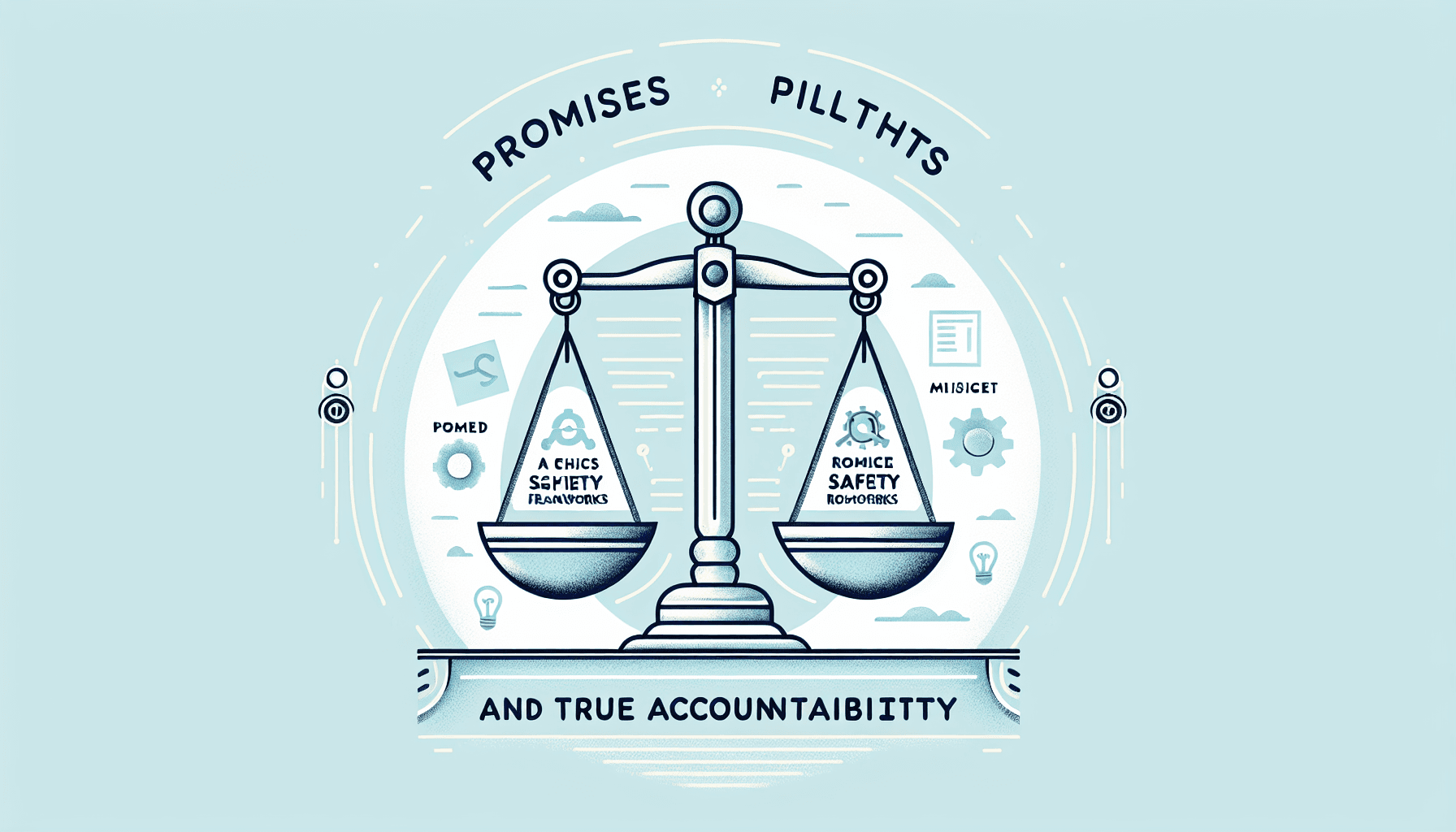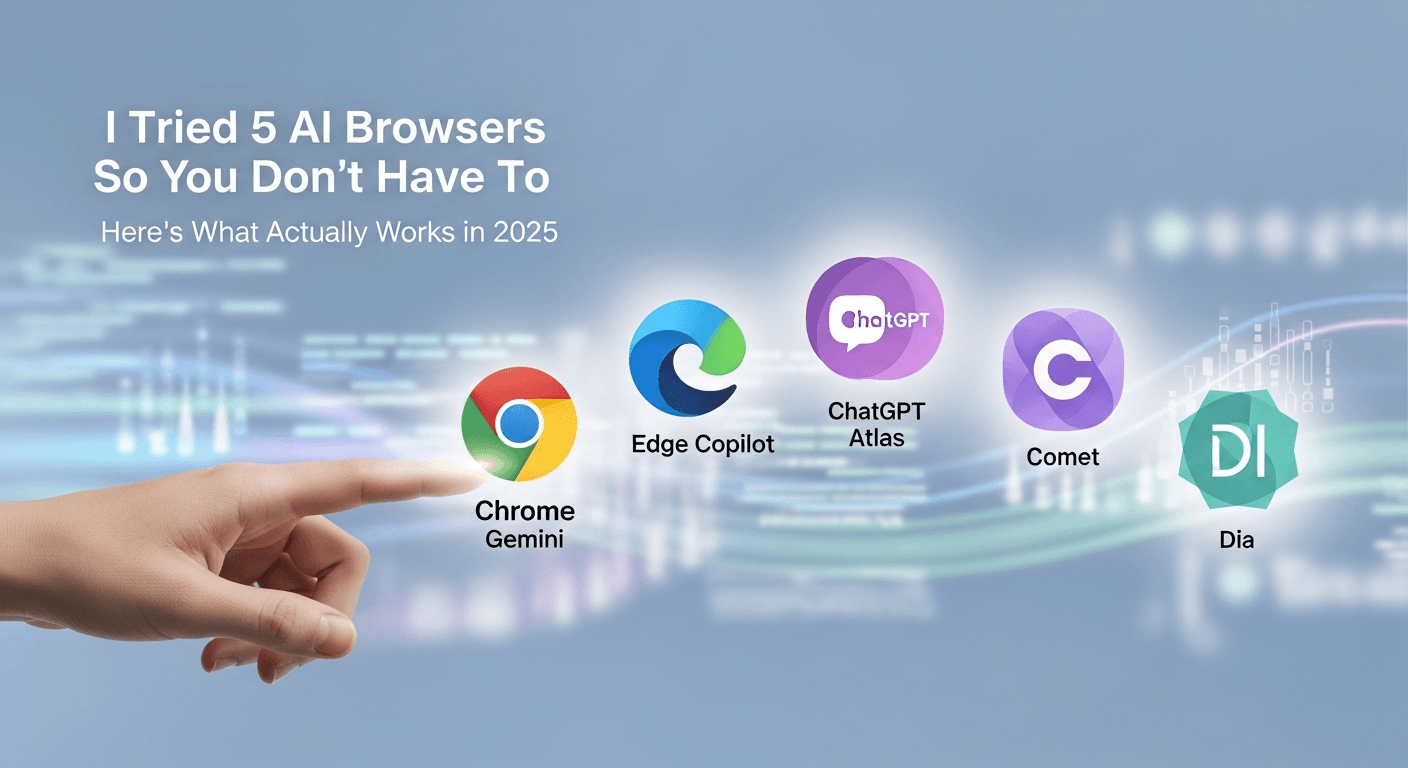
DeepMind and Ethics: Promises, Pitfalls, and the True Meaning of Accountability
DeepMind and Ethics: Promises, Pitfalls, and the True Meaning of Accountability
Google DeepMind is at the forefront of the AI race, developing some of the most powerful systems we have today. This leads to an important question: can we trust DeepMind to act ethically? The answer isn’t just about polished principles or blog posts; it’s about having solid safeguards, a transparent history, and independent accountability that goes beyond mere words.
Why This Matters Now
As advanced AI models become more prevalent, their social impact increases as well. DeepMind and Google have outlined AI principles and safety frameworks, pledged to rigorously evaluate their models, and actively participated in government initiatives. Yet, the company’s history includes notable missteps that provoke skepticism—from a significant NHS data controversy to recent issues such as the flawed image generation by Gemini.
This article will explore what DeepMind claims it aims to do, what its history reflects, and what true, testable accountability should look like for a lab of its magnitude.
What DeepMind Says It Will Do
In recent years, Google and DeepMind have established commitments to responsible AI and safety practices:
- AI Principles and Policies: Google has publicly committed to a clear set of AI principles and review processes to guide development towards socially beneficial uses while steering clear of harmful applications. These principles emphasize safety, privacy, accountability, and fairness (AI Principles).
- Security-by-Design: Google introduced the Secure AI Framework (SAIF), promoting depth of defense practices for AI systems across data, model, and deployment layers (SAIF).
- Frontier Safety: The company has detailed a frontier safety strategy, which includes capability assessments, red teaming, and staged deployment for higher-risk features while engaging in international safety discussions (Frontier Safety Framework; Bletchley Declaration and Frontier AI Safety Commitments).
At first glance, these initiatives look promising. They align with industry standards, such as evaluating models and conducting red teaming before a wide release, and match government expectations emerging in the EU and UK.
What the Record Shows
Trust is built on performance, not just promises. Here are critical moments that impact DeepMind’s credibility regarding ethics and safety:
NHS Patient Data Controversy
Between 2015 and 2017, DeepMind collaborated with the Royal Free London NHS Foundation Trust to develop the Streams app, which provides alerts for acute kidney injuries. The UK Information Commissioner’s Office determined that the project did not comply with data protection laws, as it shared the records of 1.6 million patients without proper legal basis or transparency (ICO Ruling).
To regain trust, DeepMind established an Independent Review Panel for its health initiatives. However, when DeepMind Health was integrated into Google, that panel was disbanded, raising new concerns about oversight and data governance (The Verge; The Guardian).
Gemini’s Image Generation Missteps
In early 2024, Google’s Gemini image generation produced historically inaccurate images, raising questions about its bias mitigation strategies and release processes. Google reacted by pausing the feature and publicly acknowledging the errors (Google Update).
Promises vs. Proof
These incidents highlight a recurring pattern: frameworks and panels may be announced, but consistent follow-through is lacking. For a powerful organization, ethics must be measured by ongoing, verifiable practices rather than just good intentions.
Why Ethics Is Challenging for Frontier AI Labs
Three systemic pressures make it hard to uphold ethical commitments without rigorous safeguards:
- Competitive Dynamics: The race for talent, benchmarks, and customers can accelerate timelines, increasing the risk of underdeveloped releases.
- Complex Externalities: Issues like bias, misinformation, or privacy breaches can emerge during deployment, not just in the lab, rendering pre-release evaluations necessary but insufficient.
- Organizational Change: Restructurings and product shifts can jeopardize oversight bodies unless they are embedded in governance structures with clear authority.
What Genuine Accountability Should Look Like
If DeepMind aims to build lasting trust, several concrete practices should indicate progress beyond mere principles:
- Independent Oversight with Authority: Form a truly independent entity with access to internal documents, the power to publish unedited reports, and the authority to recommend pauses or mitigations for high-risk launches.
- Transparent Safety Cases: For significant model or feature releases, provide safety cases detailing risks, test results, and mitigation measures, in alignment with recognized frameworks like the NIST AI Risk Management Framework.
- Incident Disclosure and Learning: Handle safety incidents as you would software vulnerabilities: disclose, analyze root causes, fix, and share lessons learned. Engage in community efforts like the AI Incident Database.
- Third-Party Audits and Evaluations: Invite external red teams and evaluators to examine dangerous capabilities, bias, and privacy risks, with summaries publicly shared before general availability.
- Regulatory Compliance by Design: Anticipate the EU AI Act’s risk-based regulations and transparency requirements with traceable documentation and conformity assessments (EU AI Act).
Assessing DeepMind’s Current Trajectory
It’s important to acknowledge the positive steps taken: publishing principles, security frameworks, and safety protocols demonstrate intent and create opportunities for accountability. The pause of the Gemini feature shows a readiness to adjust publicly. However, the NHS episode and the end of independent oversight when the health division was absorbed into Google serve as cautionary tales. A noticeable gap still exists between commitments and consistent, verifiable implementation.
Trust, then, should be conditional and evidence-based. The more DeepMind can operationalize external audits, publish safety cases, and support independent oversight, the more credible its ethical stance will be.
Bottom Line
Can we trust DeepMind to act ethically? We can place our trust in what is demonstrated, measured, and independently verified. Principles are essential for setting the direction; governance and transparency provide the proof. As the landscape of frontier AI evolves, the standards for evidence should continue to rise.
FAQs
What is Google DeepMind?
DeepMind is Google’s advanced AI research lab, renowned for systems like AlphaGo and cutting-edge language and multimodal models. It works on foundational research and AI features across Google’s various products.
What happened with DeepMind and the NHS?
DeepMind collaborated with the Royal Free NHS Trust to create a clinical alerts app. The UK ICO ruled in 2017 that the sharing of patient data lacked a proper legal basis and transparency. DeepMind later apologized and updated its processes (ICO Ruling).
Why did Google pause Gemini’s image generation?
In February 2024, Google paused Gemini’s image generation after it produced historically inaccurate images. The company acknowledged problems with its safety measures and representation logic and pledged to make corrections (Google Update).
Are AI safety frameworks enough on their own?
No. Frameworks provide guidance for best practices, but trust relies on verifiable processes: independent testing, transparent reporting, incident disclosure, and regulatory compliance.
What should organizations deploying AI look for?
Seek safety documentation, summaries of third-party evaluations, incident response procedures, and alignment with standards like the NIST AI RMF. Prioritize vendors that provide concrete evidence rather than just promising principles.
Sources
- Google AI Principles
- Google Secure AI Framework (SAIF)
- Google Frontier Safety Framework
- UK AI Safety Summit: Bletchley Declaration
- Frontier AI Safety Commitments (UK Government)
- ICO: Royal Free – Google DeepMind Trial Failed to Comply with Data Protection Law
- The Verge: DeepMind Says Its Controversial Health App Is Now Google’s Problem
- The Guardian: Google to Absorb DeepMind Health Division
- Google: Update on Gemini Image Generation
- NIST AI Risk Management Framework
- AI Incident Database
- Council of the EU: AI Act Final Approval
Thank You for Reading this Blog and See You Soon! 🙏 👋
Let's connect 🚀
Latest Insights
Deep dives into AI, Engineering, and the Future of Tech.

I Tried 5 AI Browsers So You Don’t Have To: Here’s What Actually Works in 2025
I explored 5 AI browsers—Chrome Gemini, Edge Copilot, ChatGPT Atlas, Comet, and Dia—to find out what works. Here are insights, advantages, and safety recommendations.
Read Article


